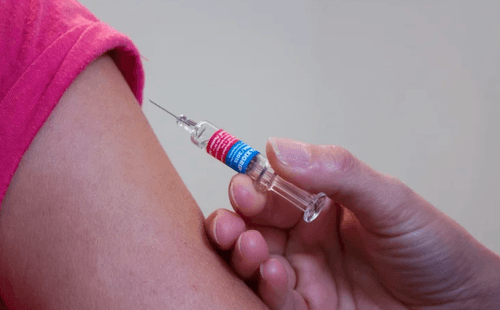
This month, Denise Faustman’s lab at Massachusetts General Hospital (“MGH”) started a new chapter of its decades-long investigation of the Bacillus Calmette–Guerin (“BCG”) vaccine in type 1 diabetes (“T1D”) patients. The lab is now actively recruiting adolescent patients (ages 12 to 17) who have had T1D for at least two years to receive the vaccine in the hopes that it can restore their body’s ability to produce insulin.
Over the years, we’ve followed Dr. Faustman’s research into the effects of BCG on T1D patients closely. This report will briefly survey the history of this research as context for their two current trials, each of which has the potential to be a Practical Cure if the research results bear out.
BCG Background
BCG is one of the oldest vaccines in use. The World Health Organization recommends the BCG vaccine for all children born in countries with a high incidence of tuberculosis and/or leprosy. It is also approved by the FDA as a treatment for bladder cancer.
Dr. Faustman hypothesizes that administering a particular strain of BCG to people with T1D will balance the overactive autoimmune attack while regenerating the insulin-producing cells that remain present even in people who have had T1D for many years. According to her most recent literature, “as societies have become cleaner, more urban, and less agricultural, there has been a reduction in infections and exposures coincident with an increase in the incidence of allergy and autoimmunity. It has been suggested that BCG may replace the impact of immunomodulating bacterial exposures lost in the move to cleaner societies.” (1)
Summary of Past Results
A handful of researchers have conducted studies examining the effects of BCG on T1D. The results have been mixed and at times conflicting. A 2020 research paper published in the Journal of Clinical Investigation compared the results of four separate human trials which included nearly 200 T1D patients. The four trials administered different strains and doses of BCG to different kinds of T1D patients (ie, some who had been recently diagnosed, some who had lived with the disease for over 20 years). The paper concluded that “The pooled meta-analysis demonstrated no significant difference in HbA1c levels or fasting C-peptide in the BCG intervention group as compared with that in the placebo group.” (2)
In 2018, Dr. Faustman’s lab published results from a 12-person Phase 1 trial that showed small increases in C-peptide, a good outcome that indicates the patients’ bodies were making traces of insulin. The trial participants were far from insulin independence, but the researchers found the results compelling enough to continue the investigation.
Dr. Faustman’s research has stirred up considerable controversy in the T1D research community. JDRF and the ADA issued a joint statement following the publication of clinical results in 2018 claiming that it was not clear that the good outcomes experienced by the people who got BCG were the result of the vaccine (3). JDRF has rejected multiple applications for funding for the BCG clinical trials, including the recently launched pediatric trial. In a 2022 Boston Globe article, Dr. Steven Kissler of the Joslin Diabetes Center said the research “is not something being pursued or taken seriously by the rest of the field.” (4)
Dr. Faustman has pressed on despite her detractors. In response to the criticism published recently in the Globe, Dr. Faustman said “Dr. Kissler does not speak for the diabetes field.” Further, her lab has managed to fund two 150-person clinical trials of BCG without the financial support of JDRF or the ADA (see below). We will report on the results of these trials when they become available.
Two Active Trials
Mass General has two current, active trials of BCG in T1D. In each trial, patients receive two shots of the vaccine. Researchers claim that the clinical benefit does not occur until three years after the second dose, so each trial is expected to last five years. The success of each trial hinges on the ability of BCG to increase the patients’ ability to produce insulin. Therefore, we will track each of these as Practical Cure trials. The aim, of course, is to achieve insulin independence.
Repeat BCG Vaccinations for the Treatment of Established Type 1 Diabetes (5)
- 150-person trial completed recruiting in 2018
- Adults with T1D
- Results expected in 2023
Repeat BCG Vaccinations For The Treatment Of Pediatric Type 1 Diabetes (6)
- 150-person trial initiated in 2022
- Not yet recruiting patients
- Patients between 12-17 years old diagnosed with T1D for at least two years
- BCG will be administered at Mass General in Boston, but the trial is in collaboration with NYU Langone
Conclusion
While many are skeptical about the past results of BCG in T1D, the drug is safe, cheap, and possibly beneficial for people living with the disease. If Dr. Faustman’s lab can show that BCG effectively reduces or eliminates the need to take external insulin in either of the current trials that would be a fantastic outcome for our community. The results will tell the story.
References:
- BCG For T1D
- https://www.ncbi.nlm.nih.gov/pmc/articles/PMC7139880/
- https://www.jdrf.org/blog/2018/06/25/joint-statement-from-jdrf-and-the-american-diabetes-association/
- https://www.bostonglobe.com/2022/03/21/metro/could-100-year-old-vaccine-treat-type-1-diabetes-mgh-researchers-are-working-find-out/
- https://clinicaltrials.gov/ct2/show/NCT02081326?term=bcg&cond=type+1&draw=2&rank=3
- https://clinicaltrials.gov/ct2/show/NCT05180591?term=bcg&cond=type+1&draw=2&rank=1
If you or someone you know might want to sign up for the trial of BCG in adolescents, follow the link below for the contact information of the trial hosts.
